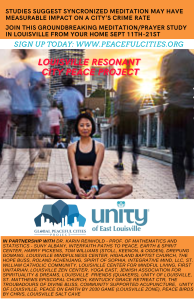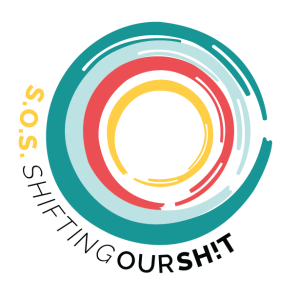Making Friends With Money
Shifting Our Sh!t Podcast Episode #20: Megan Bayles Bartley tells co-host Rob Giltner all about her annual January retreat in Napa Valley. The weather in the area was unpredictable, with pouring rain and occasional sunshine. Megan discussed a new book she has written which contains exercises to help reset and reframe. She also discussed her new theme for the year, which she had come up with even before the retreat.
Here are some takeaways from Episode #20:
Set goals and achieve them.
Setting goals and achieving them is an important part of life and can help us to reach our fullest potential. Having clear objectives and working towards them can provide us with a sense of accomplishment and purpose. On the SOS podcast, we will explore the importance of setting goals and how to go about achieving them.
Setting goals can help to provide us with focus and direction. It can help us to break down our long-term goals into smaller, achievable steps. We can also set short-term goals to help us stay motivated and on track. It is important to remember that goals should be realistic, measurable, and achievable.
Once we have set our objectives, we can create a plan of action. This plan should include a timeline for completing each goal, as well as a list of resources and support that we may need to achieve them. It is also important to set checkpoints along the way to help us measure our progress.
In addition to setting goals, it is important to stay motivated and focused. It can be easy to get distracted or discouraged, but it is important to remember why we set the goals in the first place and to stay focused on our end goal. We can also use positive affirmations and self-talk to help us stay motivated.
Megan recently returned from a retreat that she attended to help her set goals and achieve them. She and her fellow participants developed a theme for the year based on what they visualized for themselves at the end of the year. They also made bracelets with their theme word to remind them of their goals.
Setting goals and achieving them can help us to reach our fullest potential. It is important to set realistic, measurable, and achievable goals and to create a plan of action with a timeline for completing each goal. We should also stay motivated and focused on our end goal and use positive affirmations and self-talk to help us stay on track. By following these steps, we can set goals and achieve them.
Greed makes me uncomfortable.
However, when it comes to money and greed, I find it difficult to stay motivated and focused. Greed makes me uncomfortable and I feel like it is a distraction from my real goals. Greed can lead to an unhealthy obsession with money and material possessions. It can also lead to a feeling of entitlement, which can be damaging to our relationships and our overall well-being.
When I think of the amount of money that some of the wealthiest people in the world have, I think of all the good I could do with that money. I think of how I could help those in need and improve the lives of so many people. It’s not that I want to be greedy, but I do want to use my resources to make the world a better place.
I have come to realize that money can be a powerful tool for good. It can be used to fund research, support education, and provide access to basic necessities for those in need. Money can also be used to provide resources for people to pursue their dreams and create a better life for themselves.
In order to use money for good, I have to change my mindset and focus on the positive impact that money can have. I need to be mindful of my spending and focus on investing in what will bring me the most joy and fulfillment. I need to be aware of my own entitlement and recognize that money can be a powerful tool for good.
Greed can make us feel uncomfortable, but it doesn’t have to be a bad thing. We can use money to create positive change in the world. We just need to change our mindset and focus on the positive impact that money can have. With the right mindset, we can use money for good and create a better world for everyone.
Make money without guilt.
Money can be a powerful tool for making positive changes in the world. We can use it to fund projects for the benefit of others, to start businesses that create jobs and economic opportunities, and to invest in education and healthcare. We can also use money to support charities and organizations that are doing good in the world. Money can be used to help those in need and to make a positive difference in the lives of others.
At the same time, we need to be careful not to fall into the trap of feeling guilty when we make money. Money is a tool and it can be used for good or bad, but it doesn’t have to be seen as a negative thing. We can use money to create positive change and to make a difference in the world.
It is important to remember that money is not the only way to make a difference. We can also use our time, knowledge, and skills to help others. We can volunteer our time to help those in need, or use our skills to create something that will benefit others. We can also use our knowledge to educate and empower others.
Making money without guilt is possible if we remember to focus on the positive impact that money can have. We can use money to create positive changes in the world, and we can also use our time, knowledge, and skills to make a difference. With the right mindset, we can make money without guilt and use it to make the world a better place.
Work on your fears.
Money can be a source of fear for many people. Whether it’s the fear of not having enough money, or the fear of having too much, money can be a source of anxiety. We can be afraid to talk about money, because it can be a sensitive subject. We may feel embarrassed to talk about our financial situation, or we may feel ashamed of our money habits. We may also be afraid to take risks with our money, because we don’t want to make a mistake that could cost us in the long run.
It’s important to remember that money is just a tool, and it’s up to us how we use it. We can use money to help others, to invest in our future, or to create a comfortable lifestyle for ourselves. We can also use money to work on our fears. When we work on our fears, we can become more confident with our money decisions and more comfortable with our financial situation.
Working on our fears can help us to make more informed decisions about our money. We can learn to be more mindful about our spending, and we can become more aware of our financial goals. We can also become more aware of our money habits and how they affect our financial situation. When we understand our money habits, we can make more informed decisions and take better control of our financial future.
Working on our fears can also help us to become more confident in our money decisions. We can learn to trust our intuition and be more comfortable with taking risks. We can also become more confident in making money decisions that are in our best interest. Working on our fears can help us to become more confident in our money decisions and more comfortable with our financial situation.
Working on our fears can help us to make better money decisions, become more confident with our money decisions, and become more comfortable with our financial situation. We can use money to create positive changes in the world, and we can also use our time, knowledge, and skills to make a difference. With the right mindset, we can make money without guilt and use it to make the world a better place.
Work on yourself for growth.
Working on ourselves for growth can help us to form healthier relationships and build better connections with those around us. We can learn how to communicate better, how to listen and be more understanding, and how to support each other through difficult times. By developing our interpersonal skills, we can create a more harmonious atmosphere in our lives and in the lives of those around us.
Working on ourselves can also help us to manage our anxiety, depression, and other mental health issues. We can learn how to better manage our emotions and how to cope with the stresses of life. We can also learn how to better regulate our thoughts and feelings, which can help to reduce our stress levels and improve our mental health.
The concept of past lives can be an interesting one to explore. Although we may not have all the answers, there is something to be said for exploring the possibilities. We can take a class on past life exploration and learn more about the concept. We can also take the time to reflect on our own lives and the experiences that have shaped us.
The journey of self-growth is an ongoing one, and it can be a rewarding experience. We can learn how to better manage our money, relationships, and mental health. We can explore the concept of past lives and reflect on our own experiences. Taking the time to work on ourselves for growth can help us to create positive changes in our lives and in the world.





 As a therapist, I specialize in helping people flourish, whether that means leaving a toxic relationship of some sort or working to improve a relationship in their life that’s worth it. I work with individuals who aren’t sure what they want and help them determine what’s
As a therapist, I specialize in helping people flourish, whether that means leaving a toxic relationship of some sort or working to improve a relationship in their life that’s worth it. I work with individuals who aren’t sure what they want and help them determine what’s 





 Kim Hamilton, MAMFT specializes in working with kids, teens, and parents to bring emotional regulation and harmony to families and households. She works from a non-judgemental, solution-focused, non-pathologizing perspective that creates win-win scenarios within relationships. Megan Bayles Bartley is excited for Kim to join the team and knows she will be a wonderful resource for your family.
Kim Hamilton, MAMFT specializes in working with kids, teens, and parents to bring emotional regulation and harmony to families and households. She works from a non-judgemental, solution-focused, non-pathologizing perspective that creates win-win scenarios within relationships. Megan Bayles Bartley is excited for Kim to join the team and knows she will be a wonderful resource for your family.







